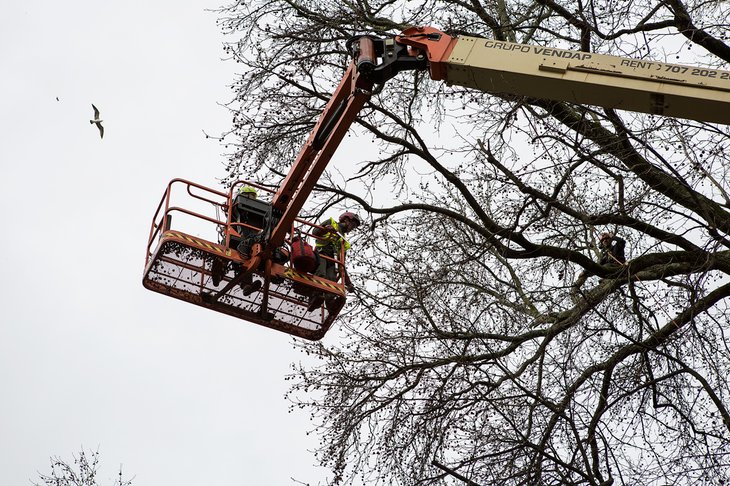Porto City Hall joins urban tree health European Project
Dulce Pereira Abrantes
Article

Filipa Brito
Porto City Hall joined the UrbanMycoServe European project to develop innovative ways to protect urban trees in the city of Porto, namely by using wild mushrooms (aka ectomycorrhizal), which will help care for the urban forest.
Porto is the only Portuguese city to participate in the UrbanMycoServe project with the Escola Superior de Biotecnologia da Universidade Católica Portuguesa (School of Biotechnology of Porto Catholic University) spotlighting the benefits of using wild mushrooms to keep urban trees health, namely by using the ectomycorrhizal form of symbiotic relationship that occurs between a fungal symbiont, or mycobiont, and the roots of various plant species, as is the case of the silver linden tree (tilia tomentosa).
Human-made services compete with trees for space in urban areas; as such, it is adamant that trees are granted space to grow, and protected from pests and stress, which will result in great benefit both for the environment and for the community, owing to the fact that urban space for tree planting is reduced and that causes trees to stress. The use of these fungus has proven beneficial, as showed by the researchers at the School of Biotechnology of Porto Catholic University. In the framework of the project, an inoculation technique was developed to insert these fungus in Porto urban trees.
Besides Porto, other two European cities took part in the project, financed by the ERA-NET BiodivERsA programme, namely Leuven (Belgium) and Strasbourg (France).
The Municipality of Porto was engaged, from the outset with the he School of Biotechnology of Porto Catholic University. This project was also supported by the Centro Regional de Excelência em Educação para o Desenvolvimento Sustentável da Área Metropolitana do Porto (CRE, Porto), by Forestis and by Mycotrend, forming an ecosystem of additional skills that enhances the research representativeness.
It is worth recalling that Porto City Hall is pursuing the strategy of expanding its green spaces, and that includes the implementation of nature-based solutions, which not only benefit the communities but also make the city more resilient to climate change.